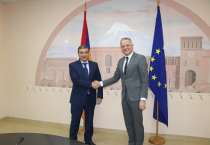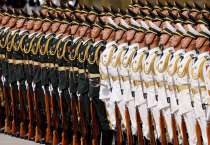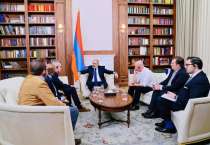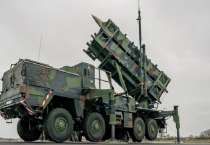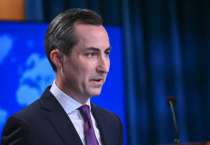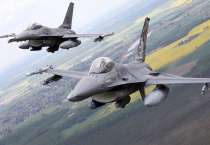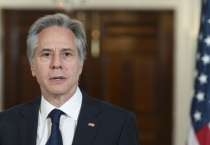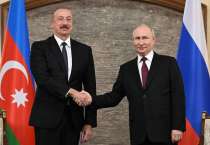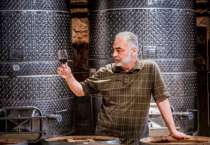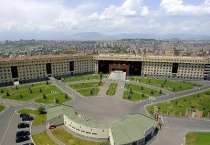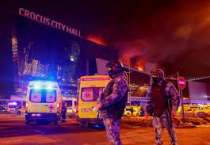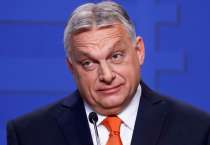Richard Scolyer: Melanoma doctor's high-stakes gamble to treat his brain cancer
Foreign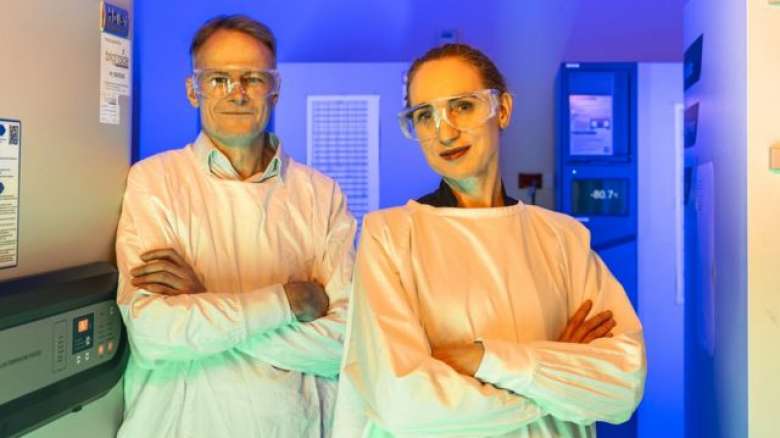
On opposite sides of the world, Richard Scolyer and Georgina Long each took one look at a scan and their hearts sank.
In front of them was, to the untrained eye, an innocuous-looking brain.
But these long-time friends - both leading skin cancer doctors - feared it held a ticking time bomb.
Nestled in the top right corner of Prof Scolyer's skull was a section of matter lighter and cloudier than the rest.
"I'm no expert in radiology, but… in my heart I knew it was a tumour," he tells the BBC.
Neurosurgeons soon confirmed it wasn't just any brain tumour, but "the worst of the worst" - a subtype of glioblastoma so aggressive most patients survive less than a year.
Devastated but determined, he and Prof Long set out to do the impossible: to save his life by finding a cure.
And it may sound crazy, but the Australian researchers have done it before, with melanoma.
"It didn't sit right with me… to just accept certain death without trying something," Prof Scolyer says.
"It's an incurable cancer? Well bugger that!"
National treasures
Thirty years ago, when Prof Scolyer and Prof Long met as bright, young doctors, advanced melanoma was a death sentence.
But that's exactly what drew them to it.
Australia has long had the highest rate of the skin cancer on the planet and where many saw a daunting challenge, they saw potential.
"[Back] when I was doing the cancer block the most challenging patients to see were the ones with advanced melanoma. It was heartbreaking," Prof Long says.
"I wanted to make a difference."
Today, it's near impossible to overstate their impact on the field.
Anyone who gets a diagnosis or treatment for melanoma worldwide does so because of the work pioneered by the Melanoma Institute that they now lead.
Over the past decade, their team's research on immunotherapy, which uses the body's immune system to attack cancer cells, has dramatically improved outcomes for advanced melanoma patients around the world. Half are now essentially cured, up from less than 10%.
That breakthrough - or as Prof Long calls it, "penicillin moment" - is now being applied to many other cancers, saving even more lives.
It has made the duo national treasures. Almost every Australian would know someone impacted by their work and this year they've been jointly named as the Australians of the Year.
But as they were transforming the field, they were also leaving their mark on each other.
They bonded over frustration at the cases they couldn't crack, the highs of life-changing discoveries, a love of exercise, and a lofty ambition of reaching zero melanoma deaths in Australia.
"We're very different but very similar in that sort of… roll up your sleeves, get things done way," Prof Long says.
Eyes shining, the medical oncologist rattles off a list of qualities - brave, honest, upbeat, driven - which make Prof Scolyer the dream colleague and friend.
"He's a delight," she surmises.
And so, after she received that fateful call from Poland last June - where Prof Scolyer was on holiday when a seizure triggered his diagnosis - she spent the night crying.
"I'm grieving… I'm thinking my friend is going to be gone in 12 months."
But then she spent the morning plotting - poring over textbooks, researching clinical trials, and firing off emails to colleagues globally.
Glioblastomas, found in the brain's connective tissue, are notoriously aggressive and the general protocol for treating them - immediate excision then radiotherapy and chemotherapy - has changed little in two decades.
Survival rates have fared similarly. Still, only 5% of all patients live beyond five years.
Desperate, Prof Long formulated a radical plan to treat Prof Scolyer based on what had worked in melanoma, but which had never been tested in brain cancer.
Risk vs reward
In melanoma, Prof Long and her team discovered that immunotherapy works better when a combination of drugs are used, and when they are administered before any surgery to remove a tumour.
It's like training a sniffer dog, she explains: you give it a smell of the contraband, in this analogy the cancer cells, for it to be able to hunt them down later.
Prof Scolyer jokes that trying the treatment was a "no brainer".
But it comes with huge risks.
Some oncologists were sceptical that the drugs would reach his brain at all, and even if they did, that his immune system would respond.
And they worried the experiment could kill him faster.
Many brain cancers grow so rapidly that even a two-week delay to surgery could mean it's too late to operate, they said. Immunotherapy drugs are quite toxic, especially when mixed, so he could be poisoned. And if either of those things caused the brain to swell, he could die instantly.
At home colleagues quietly shared fears Prof Long's emotional ties were clouding her judgement.
"They were saying… 'Just let the neuro-oncology experts do their thing and be his friend'," she says.
"[But] he needs us… We have all this depth of knowledge, it's our duty."
And so, under the care of Prof Long and a team of experts, Prof Scolyer became the first brain cancer patient to ever have combination, pre-surgery immunotherapy.
He is also the first to be administered a vaccine personalised to his tumour markers, which boosts the cancer-detecting powers of the drugs.
'A glimmer of hope'
Weeks after that initial scan sent their lives into a tailspin, Prof Scolyer and Prof Long looked at another test result.
It was an analysis of the tumour that had been carefully plucked from Prof Scolyer's skull.
"I was blown away. In a millisecond," he says.
"It was bloody obvious that it is doing something."
Not only were there traces of the drugs in the tumour - proving the medication had reached his brain - there was an explosion of immune cells. And they were "activated", giving the team hope they would be attacking his cancers cells at that very moment.
The average time for a glioblastoma cancer to return is six months post-surgery. But eight months on, after continued immunotherapy, Prof Scolyer is showing no signs of active cancer.
Just last week, another scan came back clean and Prof Long says his brain is "normalising".
The results so far have generated huge excitement.
There's creeping hope that this could prolong Prof Scolyer's life.
But there's also optimism that the duo may be on the cusp of a discovery which could help the 300,000 people diagnosed with brain cancer globally each year.





 Iran oil exports hit six-year high as West considers tougher sanctions
Iran oil exports hit six-year high as West considers tougher sanctions Ambassador to Armenia: Impossible to ignore high-ranking Iran official’s words about borders
Ambassador to Armenia: Impossible to ignore high-ranking Iran official’s words about borders High-ranking EU official lauds EU monitoring mission role in Armenia, the region
High-ranking EU official lauds EU monitoring mission role in Armenia, the region Borrell considered high-intensity warfare in Europe likely
Borrell considered high-intensity warfare in Europe likely US and Israel have put their armed forces on high alert against possible attack by Iran: The New Times
US and Israel have put their armed forces on high alert against possible attack by Iran: The New Times Joint Armenia-EU-US high level meeting in Brussels in support of Armenia’s resilience concludes
Joint Armenia-EU-US high level meeting in Brussels in support of Armenia’s resilience concludes Newspaper: Armenia ruling force MPs have high expectations from Friday’s meeting in Brussels
Newspaper: Armenia ruling force MPs have high expectations from Friday’s meeting in Brussels Ukraine needs help now due to high risk of Russian offensive in June: Zelensky
Ukraine needs help now due to high risk of Russian offensive in June: Zelensky Nature Neurology: Chemicals in baby wipes can damage brain structures, study shows
Nature Neurology: Chemicals in baby wipes can damage brain structures, study shows Sven-Göran Eriksson reflects on his terminal cancer diagnosis and holding ‘probably the biggest’ job in football
Sven-Göran Eriksson reflects on his terminal cancer diagnosis and holding ‘probably the biggest’ job in football


















































 Most Popular
Most Popular 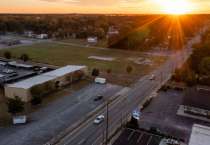
 Cyberattack forces Georgia county to sever connection to state voter registration system
Cyberattack forces Georgia county to sever connection to state voter registration system